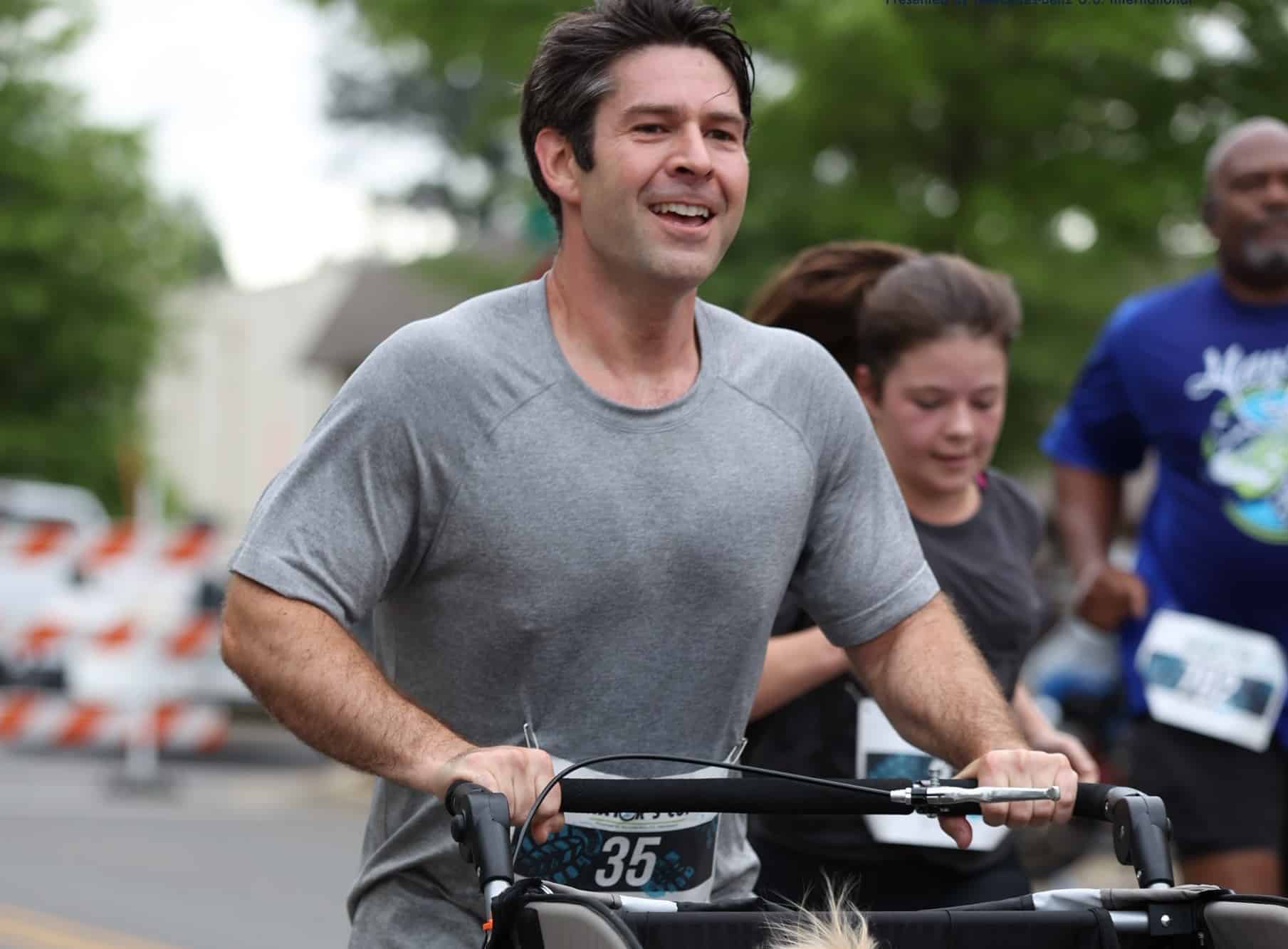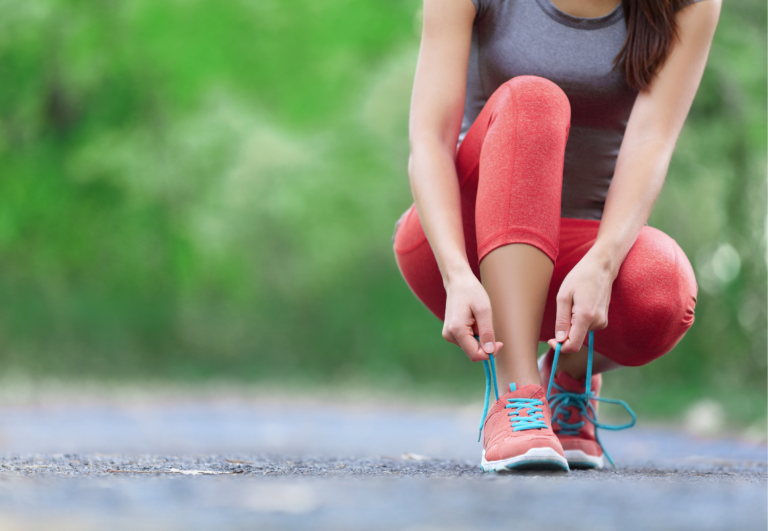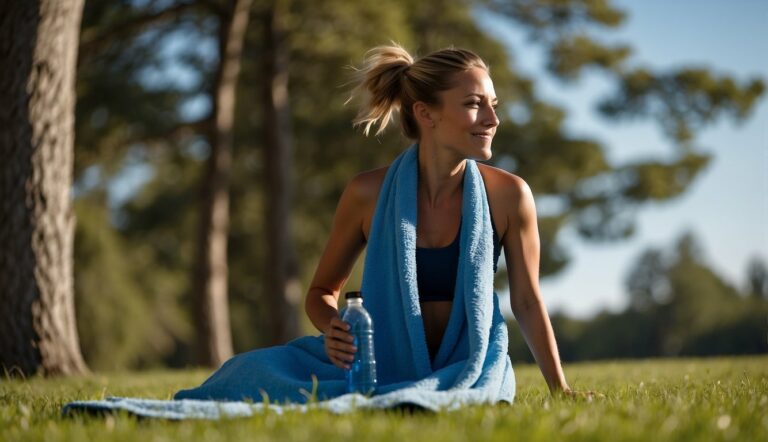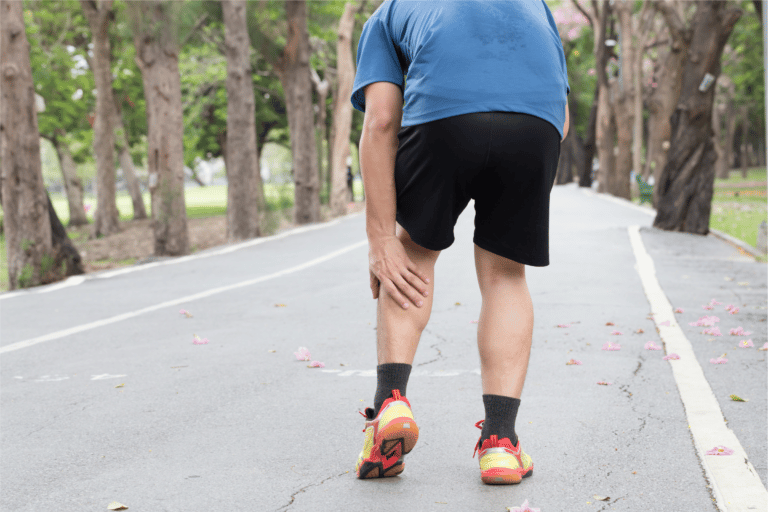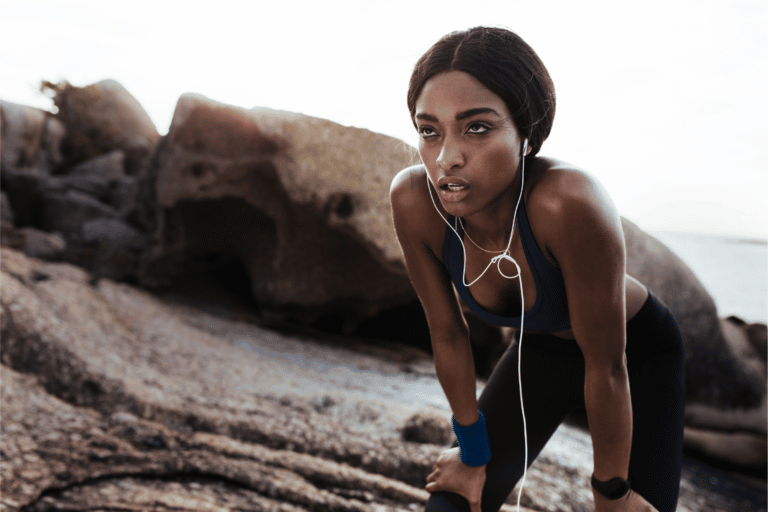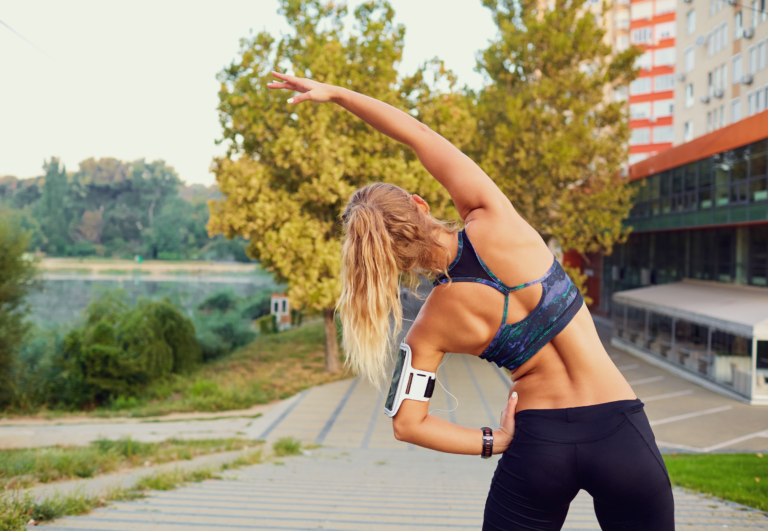Are Bananas Good for Runners? (Before, During, and After Runs)
What you eat prior to, during, or after a run can make or break your success as a runner. The wrong move and you might end up keeled over. Fear not, runners: bananas are here to save the day!
Bananas are good for runners before, during, and after runs. Eating bananas before working out provides runners with high-quality carbohydrates while taking one as a snack during a run helps maintain energy levels and avoid cramping. Consuming bananas after a run is great for replenishing energy stores and essential micronutrients and electrolytes.
Read on to learn whether runners should eat bananas, the potential pros and cons, the best time to eat bananas as a runner, and potential alternatives for runners who do not prefer the taste or texture of bananas!
Should runners eat bananas?
Running is a multi-faceted sport. On the surface, it may seem simple – lace up your shoes and go! However, there’s much more thought that goes into running.
Some of the most common questions that runners face once they begin to assimilate into the sport are how often to run, how hard to push themselves, etc. Often neglected by beginners is how to properly fuel for runs.
Fueling up has never been so complicated. Between elaborate marketing schemes for phony products and loads of misinformation, runners are left wondering what is best for them to eat.
One food runners should absolutely include in their diet is bananas. Bananas give runners carbohydrates for energy and electrolytes for performance, and they are easy to eat and digest at any time of the day. Specifically, bananas provide easy-to-use glucose along with potassium, magnesium, manganese, and the like.
The list of reasons why runners should eat bananas is endless; there’s a reason they are a fan-favorite among runners.
Bananas help runners avoid cramping by containing a high quantity of potassium. Bananas also provide magnesium that helps repair and strengthen bones, along with manganese that helps reduce inflammation.
When compared to carbohydrate-heavy drinks like Gatorade, bananas resulted in slightly better performance! The results were mostly similar, save for the fact that bananas gave athletes slightly elevated dopamine levels.
Another benefit of bananas when compared to carbohydrate drinks is that bananas are whole and do not contain excessive amounts of added sugar. Carbohydrate drinks tend to spike blood sugar levels much worse than bananas.
In fact, bananas are so great that numerous people love to run marathons dressed as bananas!
I mean, if that isn’t convincing enough, what is?
Potential banana benefits for runners
To make a rational decision, runners must know about all the potential benefits of bananas to compare the pros to the cons.
I think runners will be hard-pressed to find a pre-workout food as good as bananas; they’re great for quick energy and help ensure runners won’t suffer through their workouts.
Just a few of the many benefits of bananas are:
- Bananas provide lots of potassium. Potassium is an electrolyte that runners must be mindful of; potassium deficiency carries negative side effects like muscle cramps and heart arrhythmia. By eating bananas, runners can avoid these potential downfalls.
- Bananas can help runners recover from tough workouts. After intense runs, it isn’t uncommon for runners to experience sore muscles for days on end. By eating bananas, runners gain a high-quality source of magnesium that facilitates muscle synthesis and repair.
- Bananas help build strong bones. In a study performed in 2003, researchers concluded that while bananas have low levels of calcium, they actually enhance the body’s ability to absorb calcium from other sources.
- Bananas are an excellent source of energy for runners. The bulk of calories in bananas comes from simple sugars, specifically glucose. Glucose is easily digestible, increasing the energy available to a runner, hence the reasons bananas are so popular pre and post-race.
- Bananas can help runners heal through good sleep. Another benefit of the high magnesium levels in bananas is that they induce sleepiness. Additionally, bananas contain an amino acid called tryptophan. Tryptophan is eventually converted into serotonin, a sleep-regulating hormone.
- Bananas provide many general health benefits. On top of all the great running benefits that bananas provide, they can also help runners improve their digestive health and regulate blood sugar levels.
Potential banana bummers for runners
In moderation, bananas are amazing! Runners gain energy and enjoy many other health benefits all the while getting to enjoy a tasty snack.
However, bananas can lead to negative health effects if consumed in excess. Bananas are high in sugar and may not be the most filling of options; this can be a major downfall for runners attempting to lose weight.
Here are some other potential banana bummers for runners who are curious to learn about the downfalls of bananas:
- Bananas are high in sugar and may contribute to increased blood sugar levels. How ripe a banana is determines how bad blood sugar spikes are; ripe bananas spike blood sugar levels much more than green bananas, mostly made up of resistant starches.
- Bananas are fairly calorie dense, meaning they are not conducive to weight loss. A medium-sized banana holds about 105 calories, most of which come from carbohydrates and simple sugars. Runners may quickly become hungry without protein or fat and desire more food.
- Bananas may make runners gassy or bloated during their runs. Bananas are a great source of fiber; for some, this is good, and for others, this is bad. Between fiber and the sugar in bananas, some runners may find that eating bananas makes them gassy or bloated. This can make for an uncomfortable run.
Banana calories, carbs, and other nutritional information
Bananas aren’t just for monkeys! Their benefits for humans are undeniable, especially for athletes.
In fact, bananas were one of the first foods dubbed a “superfood,” which means that bananas have great health benefits and many essential micronutrients.
According to Harvard, bananas are great sources of Vitamin B6, fiber, potassium, magnesium, vitamin C, and manganese. Additionally, bananas provide steady energy and great satiation to those who consume them.
Here are the basic nutrition facts for a medium-sized (7-8 inches) banana:
- 105 calories
- 0.4g of fat
- 27g of carbohydrates
- 3g fiber
- 14.5g of natural sugars
- 1.3g of protein
- 6mg calcium
- 0.3mg of iron
- 422mg of potassium
- 4mcg of vitamin A
- 10.3mcg of vitamin C
When should runners eat bananas?
It’s clear that bananas are a great food for runners to consume; they provide sustainable energy, much-needed vitamins, and often neglected nutrients.
However, it isn’t so clear is the best time to eat a banana. Should runners eat bananas before a workout? During a workout? After a workout?
Runners can and should eat bananas at any time: before, during, or after a workout. However, runners may see the best benefit from eating bananas before workouts to have sufficient carbohydrate levels or after workouts to replenish glycogen stores.
Truth be told, there isn’t a wrong time to eat bananas. No matter when you eat them, bananas provide quality carbohydrates and a multitude of vitamins and minerals.
Eating a banana before a run provides sustainable energy, and eating bananas after a grueling run is great for recovery purposes.
Eating bananas during a run may not be as great as before or after because it can be slightly inconvenient; energy in liquid or gel form may be more optimal.
That said, you can still eat bananas during a run if that is your preference; they’ll give you energy all the same!
Before a run
Bananas are an excellent snack before a run. How far in advance should runners eat bananas?
Runners should eat bananas around 30 minutes prior to going for a run to ensure adequate digestion time. Eating a banana before running provides immediate energy and lots of electrolytes to foster good performance.
Fueling up before a long run is crucial for the body to have access to immediate energy. Bananas are perfect for this!
By eating bananas 30-60 minutes before working out, runners experience increased energy and are able to avoid any digestive issues with eating before running.
Eating bananas before working out also helps runners avoid cramping and exhaustion by providing runners with the necessary electrolytes.
Let’s look at some pros and cons of eating bananas before a run.
Pros
- Immediate energy from glucose
- Easy to digest
- Reduce inflammation
- Prevent cramping
- Convenient
Cons
- Possibility of a blood sugar spike
- Might feel gassy or bloated
During a run
Are bananas a viable mid-run fuel source?
Bananas are good for fueling during workouts but may be inconvenient to carry and eat. A better alternative is energy chews or gels for their ease of consumption, simple sugars, and loads of electrolytes.
During a run, runners can still consume bananas if they like; there are still many benefits! However, bananas during a run may pale in comparison to before or after.
Eating during a run is a risky business. Even with something as small as a banana, runners increase their chances of having digestive issues or feeling nauseous. Not to mention how difficult it is to peel, hold, and bite a banana mid-stride!
Instead of bananas, consider consuming a drink high in sugar and electrolytes or some form of energy chew or gel. These will give runners many of the same benefits as bananas without risking digestive troubles.
Let’s take a look at the pros and cons of eating a banana during your run.
Pros
- Refuel with immediate energy
- Avoid cramping with electrolytes
Cons
- Inconvenient to carry
- Inconvenient to eat
- Digestive issues (stomach jostling around)
After a run
After a long, grueling run, are bananas good for replenishing energy stores and electrolytes?
Bananas are great for eating after runs. By eating bananas after runs, runners do not have to concern themselves with possible digestion issues. After running, bananas replenish energy and help recovery by providing runners with necessary vitamins and other nutrients.
Bananas are just as good for recovery after a run as they are for preparing for a run.
When eating bananas after a run, runners need not worry about digestive issues. They can snack on a banana, add some protein with peanut butter, and have an awesome recovery snack!
Eating bananas after running helps replenish glycogen stores and also provides runners with nutrients and electrolytes they may have lost during their workout.
Here’s a rundown of the pros and potential cons having a banana as a post-run snack:
Pros
- Don’t have to worry about digestive issues
- Replenish glycogen stores
- Convenient
- Reduce inflammation
- Refuel necessary electrolytes (potassium, magnesium, etc.)
Cons
- Not very filling
- No protein for repairing muscles (however, can be paired with protein and fat like peanut butter)
10 banana alternatives for runners
There’s certainly a distinguishable difference between what is good for runners and what isn’t. I believe most of us could conclude what’s suitable and what isn’t.
For example, a cheeseburger before running? Unless you have an iron stomach, this probably isn’t the way to go for a pre-run meal. Food that is greasy and high in fat will only make runners feel sluggish during runs.
The best foods to fuel up for a run are light and bursting with carbohydrates and electrolytes.
Think of things you could snack on about a half hour before running. If your stomach would be upset, it’s probably not a good alternative to bananas.
If you aren’t a banana fan, for one reason or another, here are some viable alternatives to help runners fuel up before, during, and after their races!
- Oatmeal – Oatmeal is a complex carbohydrate that is best for pre-runs. Not only do oats provide immediate energy, but they also have a low glycemic index. This means that blood sugar increases slowly rather than spiking, yielding runners with sustainable energy.
- Peanut butter – Peanut butter is high in healthy fats and provides much-needed calories for runners after they’ve finished running. While most of the calories in peanut butter come from fat, it also contains an adequate amount of protein to facilitate recovery and healing post-run.
- Energy chews – While energy chews are not the whole food we usually recommend, they are phenomenal for fueling during long runs due to their portability! Energy chews and gels are made up of simple sugars that are quickly digested and utilized for energy. Better yet, they also contain electrolytes.
- Orange or orange juice – Oranges, or the juiced form, contain many vitamins and lots of simple carbohydrates to give runners immediate energy. Oranges are high in vitamin C and other electrolytes that runners often deplete while running, making them the perfect snack to ensure sufficient energy levels and avoid cramping.
- Pasta – Pasta is great for athletes who want to carb load prior to a run! The general recommendation is to consume pasta the night before running, so eating pasta requires more forethought than when fueling with bananas. All in all, pasta is a complex carbohydrate that makes an excellent pre-run meal.
- Whole grain bread – Bread often gets a bad reputation amongst athletes. However, eating whole grain bread can provide runners with high-quality carbohydrates before going for a run. For optimal results, combine with some form of protein to create long-lasting energy.
- Sweet potatoes – Sweet potatoes are yet another excellent form of complex carbohydrates that runners can benefit from eating after their run. Sweet potatoes contain lots of fiber, vitamins, and minerals, making them great for helping athletes recover. Stick to consuming sweet potatoes after running; the fiber in them may make runners gassy or bloated.
- Blueberries – Blueberries are a great post-run snack because they delay the onset of muscle soreness! After consuming blueberries, athletes were found to have much lower levels of exercise-induced oxidative stress (aka sore muscles). These benefits come from the multitude of antioxidants provided by blueberries!
- Strawberries – Opt to eat strawberries as a high-quality pre-run snack. Strawberries have high water content and lots of electrolytes, so they are great for preventing dehydration and cramping during longer runs. Additionally, as with other fruits, strawberries have simple sugars that provide easily accessible energy for runners.
- Coconut water – Coconut water, while not exactly a food, is a great alternative to bananas for mid-run hydration. The benefits of coconut water stem from the extensive list of electrolytes that it contains: sodium, calcium, potassium, and magnesium!
As a general guideline, aim to eat fruits or complex carbohydrates before going for a run. Consume foods or drinks high in simple sugars and electrolytes during a run. After a run, eat complex carbohydrates with protein to help the recovery process.
